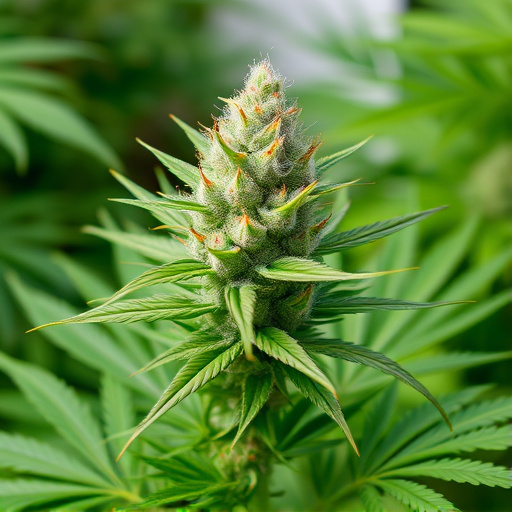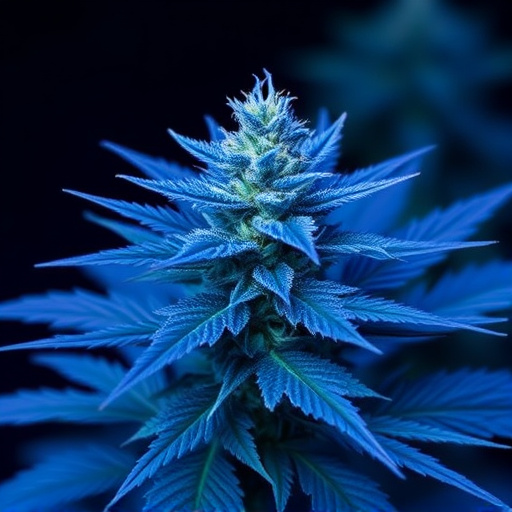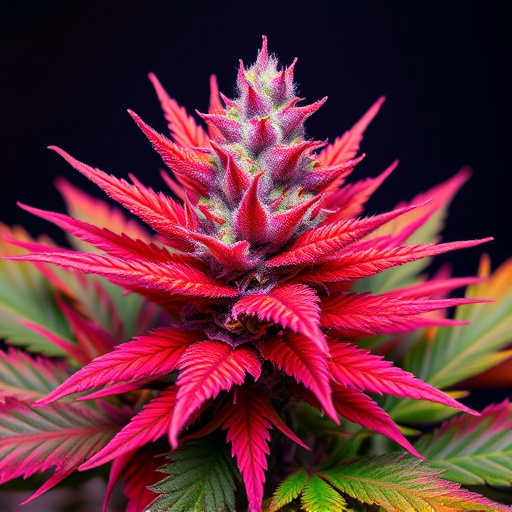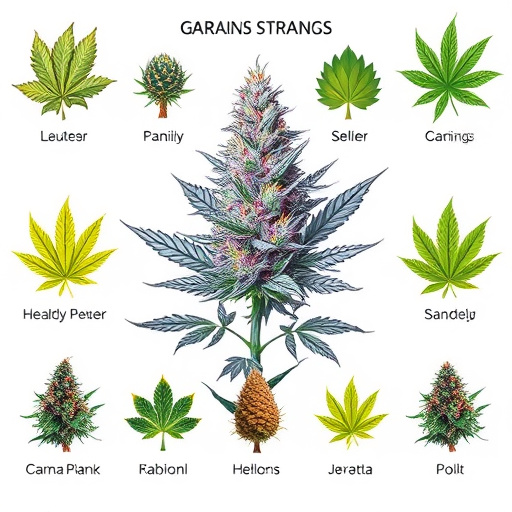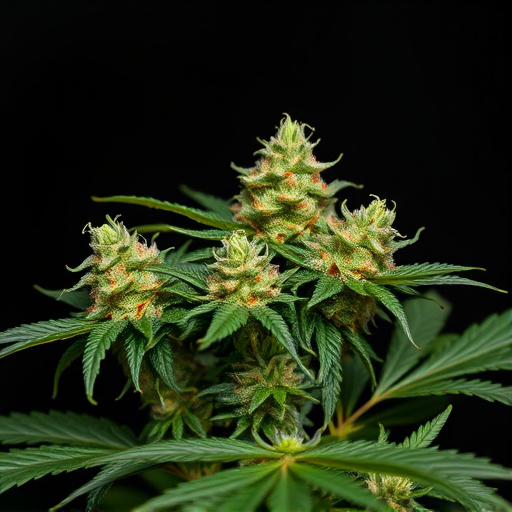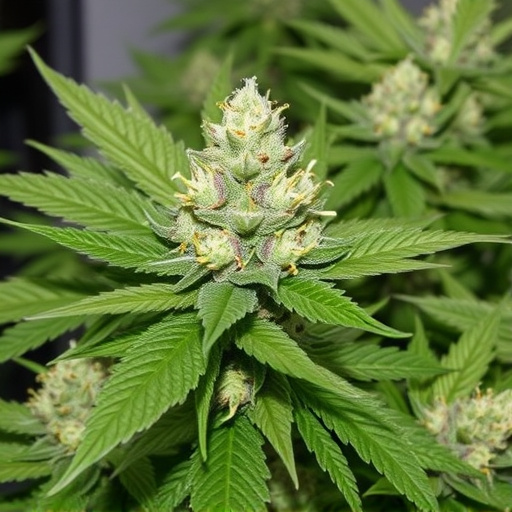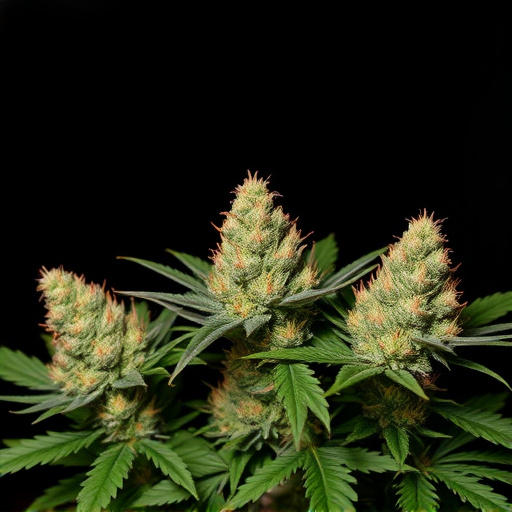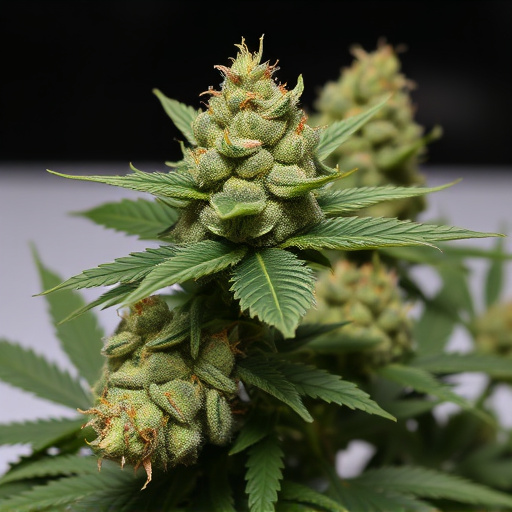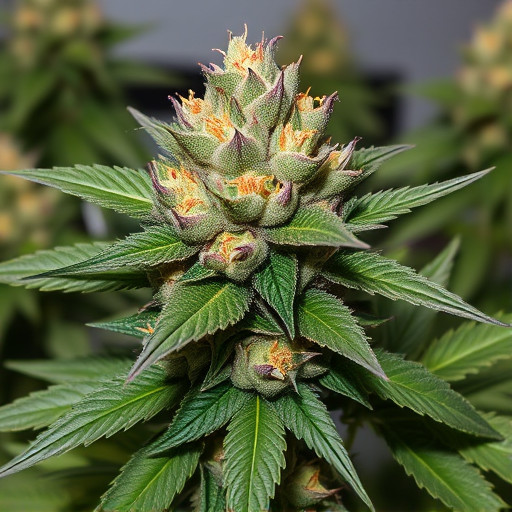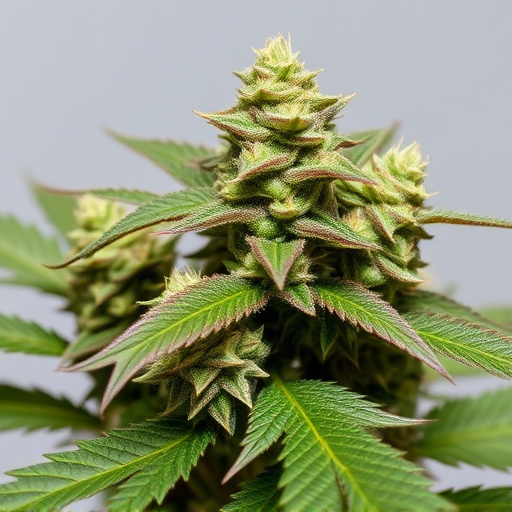Indica kush strains contain cannabinoids that interact with the brain's endocannabinoid system, influencing mood, memory, appetite, and pain perception. High THC levels can boost pleasure and relaxation, potentially alleviating anxiety and depression. Individual experiences vary based on strain potency, consumption method, and tolerance. Some advocate for indica kush strains to enhance well-being and happiness due to their sedative properties, which may reduce stress and depression symptoms. However, responsible use is crucial, as occasional cannabis use may increase life satisfaction while regular or heavy consumption can lead to mental health risks. Balanced use requires consideration of genetics, tolerance, and strain specifics, alongside a healthy lifestyle and professional support.
Can cannabis make you happier? It’s a question that sparks debate, but understanding the role of cannabinoids in mood regulation offers insights. This article explores whether specific strains like Indica Kush can positively impact well-being and happiness, while also delving into potential risks and considerations for optimal mental health. By balancing use and staying informed, individuals can navigate cannabis’ complexities effectively.
- Understanding the Role of Cannabinoids in Mood Regulation
- The Impact of Indica Kush Strains on Well-being and Happiness
- Considerations and Potential Risks: Balancing Use for Optimal Mental Health
Understanding the Role of Cannabinoids in Mood Regulation
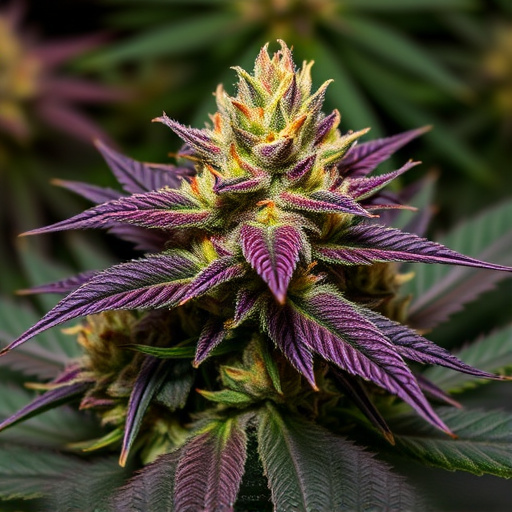
Cannabinoids, the active compounds in cannabis, have a profound impact on mood regulation within the brain. These natural chemicals interact with our endocannabinoid system (ECS), which plays a crucial role in maintaining emotional balance and overall well-being. When we consume cannabis, whether through smoking indica kush strains or other methods, these cannabinoids bind to specific receptors in our brains, influencing neurotransmitters that control mood, memory, appetite, and perception of pain.
Certain indica kush strains are particularly known for their potential mood-boosting effects due to their high concentrations of THC (tetrahydrocannabinol) and other beneficial cannabinoids. These compounds can interact with the brain’s reward system, increasing feelings of pleasure and relaxation. Many users report that specific strains help alleviate symptoms of anxiety and depression, contributing to a sense of calm and happiness. However, it’s important to note that individual experiences vary, and cannabis’s impact on mood can be complex and influenced by various factors, including strain potency, method of consumption, and personal tolerance.
The Impact of Indica Kush Strains on Well-being and Happiness
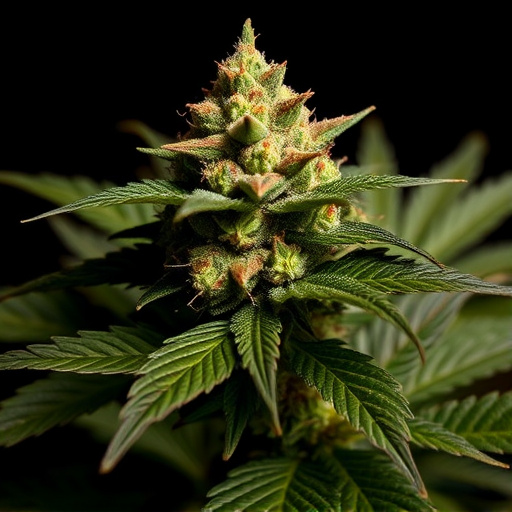
Some people believe that indica kush strains can positively impact well-being and happiness due to their sedative and relaxing properties. These strains are known for promoting a sense of calm and reducing anxiety, which can lead to an improved mood. The active compounds in indica kush strains, such as THC and CBD, interact with the body’s endocannabinoid system, affecting brain functions related to pleasure, memory, and mood regulation.
Research suggests that consuming indica kush strains may help alleviate symptoms of stress and depression. The soothing effects can create a comfortable and relaxed state, enhancing overall happiness. However, it’s essential to note that individual responses to cannabis vary, and what works for one person might not have the same impact on another. Additionally, using cannabis for emotional well-being should be done responsibly and in compliance with local laws.
Considerations and Potential Risks: Balancing Use for Optimal Mental Health
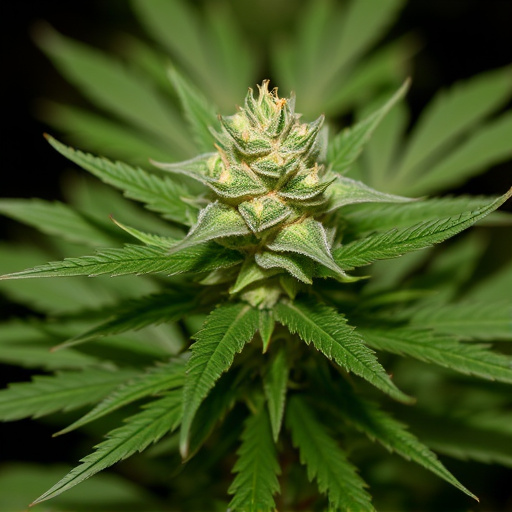
While many advocate for the potential therapeutic benefits of weed, it’s crucial to balance its use with mental health considerations. The impact of cannabis on happiness is a complex topic, as individual responses vary greatly depending on genetics, tolerance, and the specific strain used—such as indica kush strains known for their relaxing properties. Regular or heavy consumption can lead to potential risks, including anxiety, paranoia, and mood disturbances, especially in those predisposed to mental health conditions.
For optimal mental well-being, mindful use is essential. Some research suggests that occasional cannabis use may be associated with higher levels of life satisfaction, but chronic use often has the opposite effect. Balancing leisure activities, a healthy lifestyle, and seeking professional support when needed are vital components of maintaining or improving mental health alongside potential cannabis integration.
While some individuals report that weed can enhance their mood and promote happiness, particularly through the use of specific indica kush strains, it’s crucial to balance potential risks. Cannabinoids interact complexly with our bodies’ endocannabinoid systems, affecting various aspects of mental health. As such, mindful and responsible use is essential. Further research is needed to fully understand the long-term effects of cannabis consumption on happiness and overall well-being, especially in relation to different strain varieties like indica kush.

